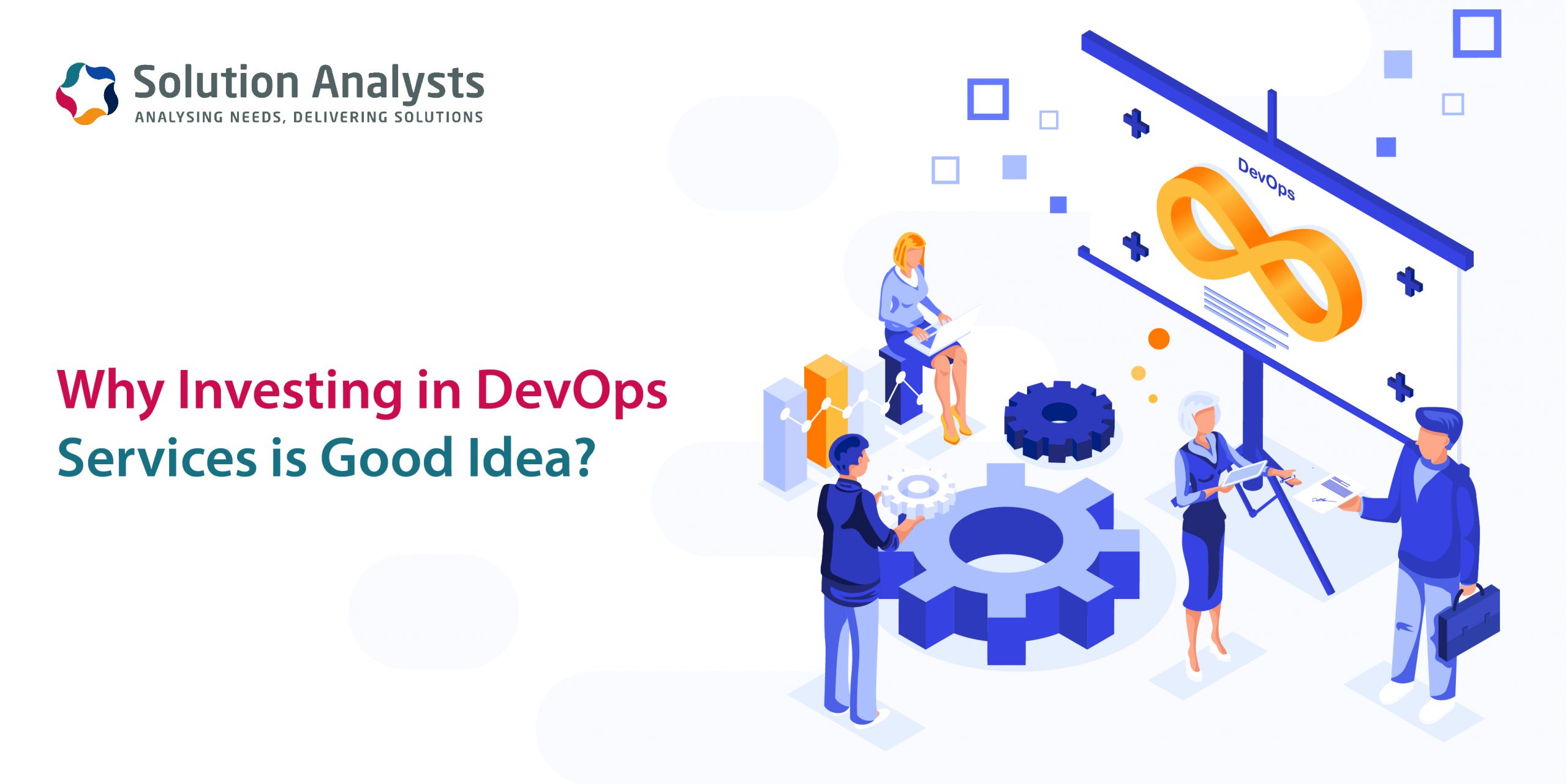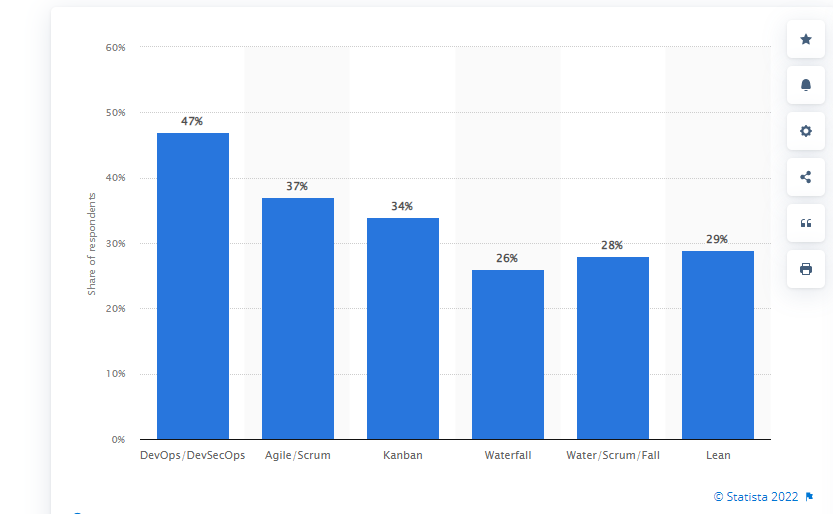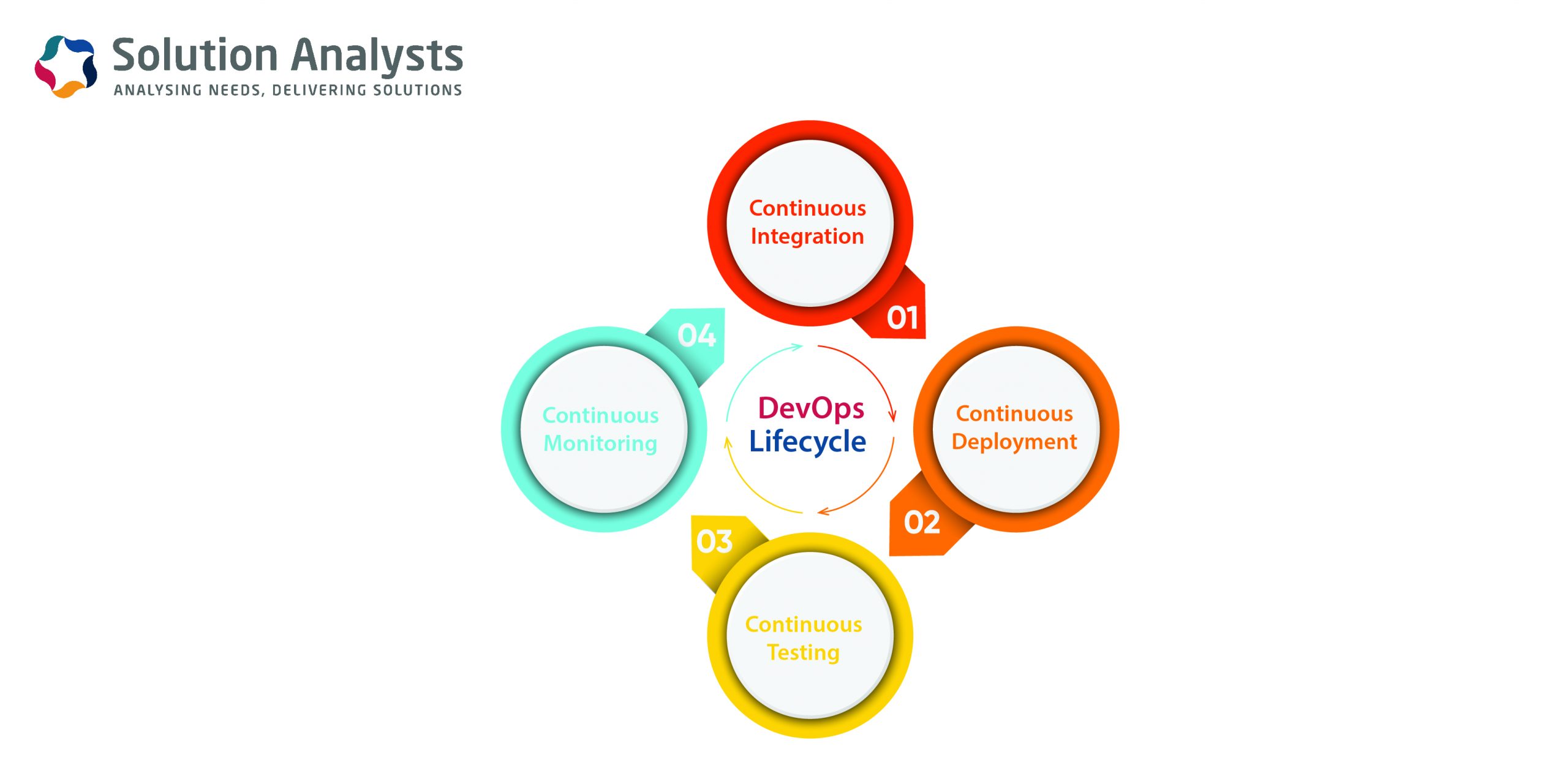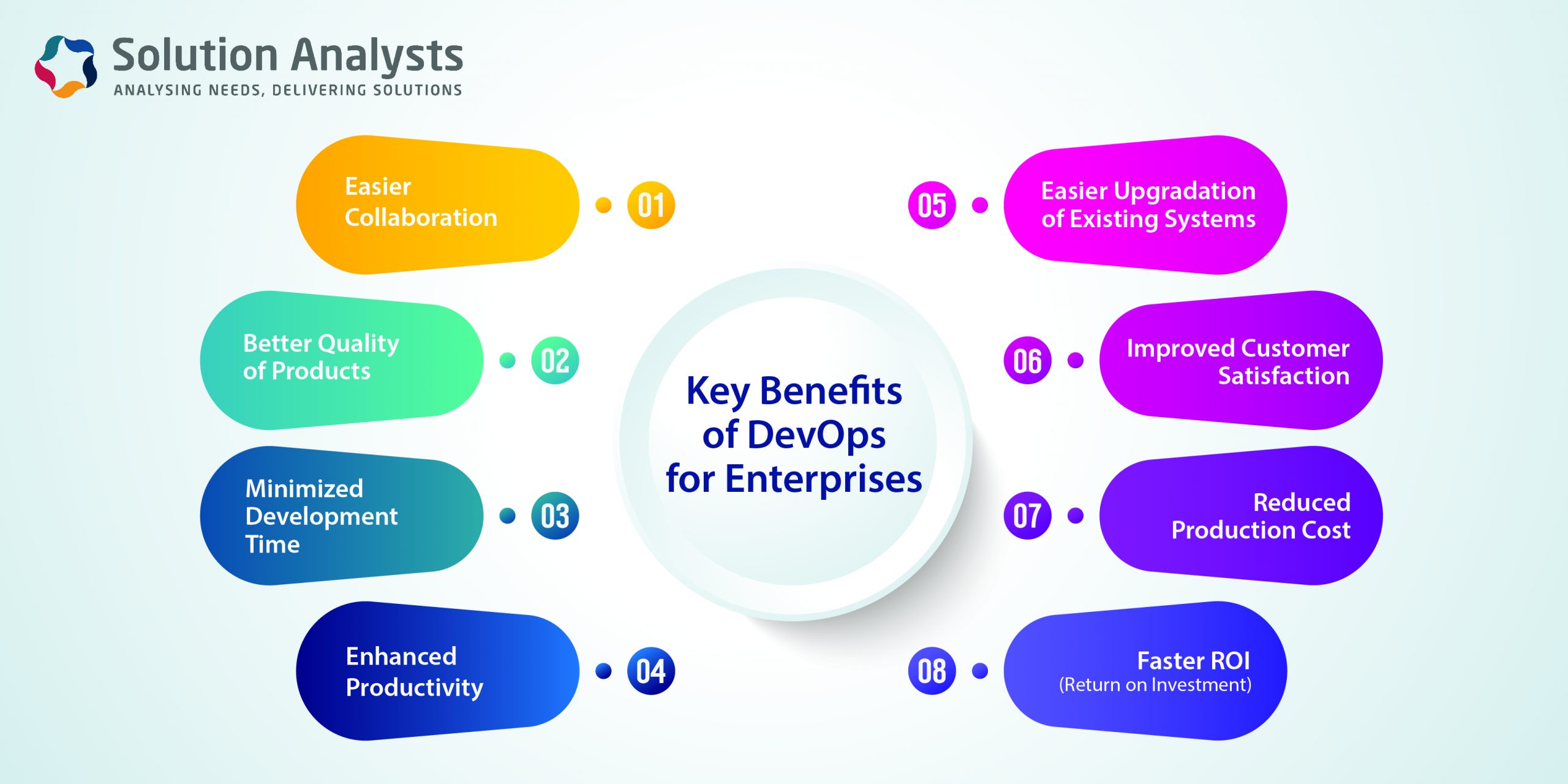
Table of Contents
DevOps is one of the popular terms that is used widely in the software development industry. It is known as a practice where a team of developers and operations work collaboratively. The main aim of these teams is to share knowledge, code, and procedures across organizational boundaries. No wonder, modern enterprises are settling for DevOps implementation. The key objective of adopting DevOps services is to enhance business agility and ensure the stability of both support and application delivery.
The ultimate goal of DevOps is to improve collaboration and communication between teams. However, it helps to speed up the delivery of software development projects.
Undoubtedly, DevOps is a successful approach that is proven to work in several different circumstances. But its success mostly relies on focusing on people rather than technology.
DevOps: A Brief Introduction
The term “DevOps” is coined by one of the IT industry genius Patrick Debois in 2009. DevOps is the amalgamation of “development” and “operations” for achieving a collaborative approach to the software development process. DevOps deployment methodology has its roots in the Agile approach and software development. DevOps needs to have a cross-functional approach to creating and delivering applications in a faster and more consistent manner.
Key Statistics that You Need to Know About DevOps
- According to Puppet’s 2017 State of DevOps Report
- 24 times more active recreation from crashes
- Reduction in moderate failure meter by 3 times
- Less time is wasted on unplanned work and rework by 22%
- 50% less time is spent addressing safety issues.
- According to Allied Market Research, the global DevOps market size was valued at $6.78 billion in 2020 and is expected to reach $57.90 billion by 2030, which means a CAGR of 24.2% from 2021 to 2030.
- As per Statista, DevOps/DevSecOps is the most practiced software development methodology globally, used by 47% of software development teams. The main reasons are faster time to market, security and code quality, and improved communication and collaboration among developers.
Breakdown of software development methodologies practiced worldwide in 2022

How Does DevOps Work?
DevOps practice relies on a pipeline that enables the automated transfer of codes from development to production. The pipeline is made of several tools which facilitate the automation of the process.
The DevOps pipeline can speed up the software development process through task automation which would otherwise be done manually. It also improves collaboration and communication between developers and IT professionals across organizational boundaries.
The DevOps lifecycle summarizes the applying the code to version control tools like Git for maintaining various versions of code. The tools are used for building the code into a file that is forwarded to QA for testing.
The DevOps Lifecycle divides into the following stages:

-
Continuous Integration
It is the most critical part of the entire DevOps cycle. It involves the integration of various phases of the DevOps lifecycle. Hence, it is concluded that this stage plays an important role in automating the whole DevOps Process.
-
Continuous Deployment
The code is built in this stage and the environment or the application is containerized and sent to the server. Configuration Management, Virtualization, and Containerization are the main process.
-
Continuous Testing
This phase involves automated testing of the application sent by the developer. If an error arises, the message is sent back to the integration tool. In turn, this tool notifies the developer about the error. In case, if the test becomes successful, the message is sent to the integration tool which pushes the build to the production server.
-
Continuous Monitoring
This stage is about continuously monitoring the deployed application for bugs or crashes. It is also useful for collecting user feedback. The collected data is sent to developers for improving the application.
Key Benefits of DevOps for Enterprises

-
Easier Collaboration
The most sought-after benefit of DevOps is it allows the knowledge sharing of teams across the organization. As DevOps enables the automation of the software development process, developers can spare more time for collaboration and create better products in a shorter amount of time.
-
Better Quality of Products
DevOps denotes collaboration between team members which allows developers and operation professionals to work together and find the solution to problems efficiently. The collaboration results in higher quality products and less likely to contain errors that could affect performance.
-
Minimized Development Time
DevOps pipelines speed up the software development process by enabling developers to give more attention to writing code instead of configuring DevOps developing environments. As a result, teams can spend less time waiting for DevOps tools to configure before starting coding. It helps teams to become more productive and efficient in the software development process.
-
Enhanced Productivity
The core concept of DevOps practices allows spending less time on repetitive tasks and give more time to developing new features. Overall, it translates into a more productive business. As developers invest more time in coding rather than configuring, results in into faster release cycle with more available features.
-
Easier Upgradation of Existing Systems
As DevOps pipelines automate various tasks of upgrading and maintaining the DevOps systems, it is easier for enterprises to keep the DevOps infrastructure updated. It prevents compatibility issues and ensures that DevOps systems function best of their capabilities.
-
Improved Customer Satisfaction
A positive customer experience is one of the crucial benefits of DevOps for business. The longer a customer waits for services, the greater the negative impact will be on business. As DevOps speed up the software delivery process, it directly impacts customer response. Moreover, DevOps as a service can streamline various aspects of workflow for enterprises. As a result, businesses can charge less for their products as compared to competitors; which adds to their advantages when it comes to customer satisfaction.
-
Reduced Production Cost
The entire DevOps methodology is based on development lifecycle operations. DevOps aspects such as Continuous Integration (CI), Infrastructure as a Code (IaC), and Continuous Delivery (CD) ensures task uniformity and infrastructure integrity. It leads to reliability in automation and a considerable reduction in time and effort invests in repetitive and routine tasks.
As DevOps can bring maintenance and new upgrades under one roof which enhances collaboration, businesses can reduce management and production amounts.
-
Faster ROI (Return on Investment)
Faster new updates and quick fixing of bugs allows businesses to recover their IT investments and generate more revenue. In terms of production, a higher-quality product can minimize the amount of time spent on security issues by 50%. Apps can have fewer issues which is one more factor in generating more income.
The following 5 aspects can increase ROI while reducing the total cost of ownership and functional expenses.
- Operational Excellence
- Strong security
- Proper Functioning of Infrastructure
- Performance Efficiency
- Cost optimization
Wrapping Up
Moving to DevOps is not just one step, it is an entire process. DevOps is transforming how development and operations are implemented today. Successfully implementing DevOps practices in your organization can have a significant impact which reflects in the form of improved efficiency, greater security, and organizational collaboration. DevOps practices, processes, frameworks, and workflow, based on the DevOps concept, can build security into your software development life cycle at speed and scale. Furthermore, it is secure, minimizes risks, ensures compliance, and reduces friction and costs.
Solution Analysts is a renowned DevOps consulting & implementation company committed to offering superior-quality solutions with a comprehensive bouquet of services.
Our DevOps solutions include DevOps consulting services, Continuous Delivery and Integration, DevSecOps, Continuous Monitoring and Testing, Infrastructure as Code, Observability, SRE (Site Reliability Engineering), Containerization, and Kubernetes.
Get in touch with our DevOps experts to further know how we can transform radical ideas into business possibilities for online retailers.











 sales@solutionanalysts.com
sales@solutionanalysts.com biz.solutionanalysts
biz.solutionanalysts






